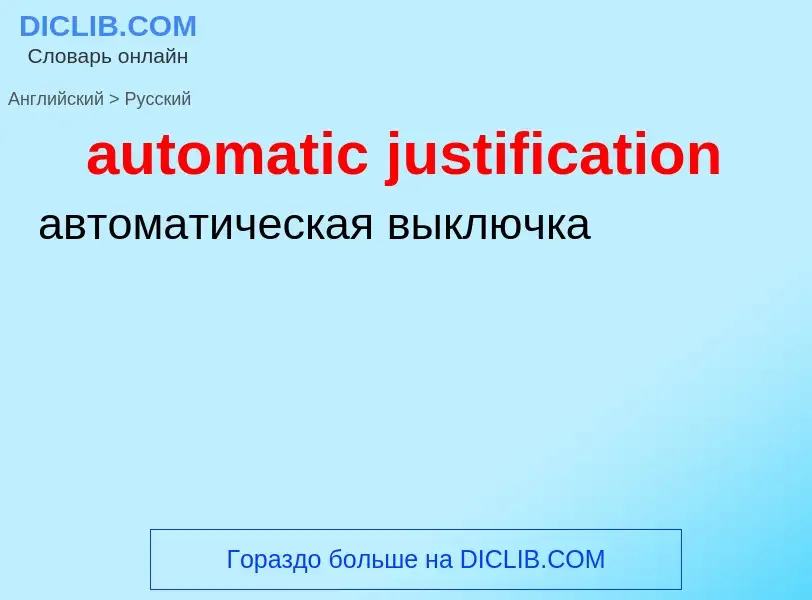Vertaling en analyse van woorden door kunstmatige intelligentie ChatGPT
Op deze pagina kunt u een gedetailleerde analyse krijgen van een woord of zin, geproduceerd met behulp van de beste kunstmatige intelligentietechnologie tot nu toe:
- hoe het woord wordt gebruikt
- gebruiksfrequentie
- het wordt vaker gebruikt in mondelinge of schriftelijke toespraken
- opties voor woordvertaling
- Gebruiksvoorbeelden (meerdere zinnen met vertaling)
- etymologie
automatic justification - vertaling naar russisch
Definitie
Wikipedia

In Christian theology, justification is the event or process by which sinners are made or declared to be righteous in the sight of God.
The means of justification is an area of significant difference amongst the diverse theories of atonement defended within Roman Catholic, Eastern Orthodox, Oriental Orthodox and Protestant theologies. Justification is often seen as being the theological fault line that divided Roman Catholicism from the Lutheran and Reformed traditions of Protestantism during the Reformation.
Broadly speaking, Catholic and Orthodox Christians believe that justification, which in their view initially occurs at Baptism, partaking of the Sacraments and the resulting grace of cooperation with God's will (sanctification) are an organic whole of one act of reconciliation brought to completeness in glorification.
In Catholic doctrine, righteousness is infused, i.e., God "pours" grace into one's soul or, "fills" one with his grace more and more over time; faith as is shown through charity and good works (fides caritate formata) justifies sinners. In Protestant doctrine, righteousness is imputed (λογίζομαι, "logizomai") to the inherently ungodly, by grace, through faith in the cross of Christ.
These traditions teach the concept of fiduciary faith, that is, that "faith alone suffices for justification, and that consequently the observance of the moral law is not necessary either as a prerequisite for obtaining justification or as a means for preserving it." Therefore, a righteousness from God is viewed as being credited to the sinner's account through faith alone, apart from works, being based solely on the blood of Christ. Growth in personal holiness is considered distinct from justification, belonging rather to sanctification.
In Roman Catholic, Orthodox, and most Protestant theology, anyone who has been justified will produce good works as a product of faith, as a result of God's grace in sanctification. Notable exceptions to the idea that sanctification and good works always accompany justification are found in Free Grace Theology and many within the Independent Baptist movement.
For Lutherans, justification can be lost with the loss of faith; for Catholics and Orthodox Christians, justification can be lost by sin. For Methodists along with other groups belonging to the Holiness Movement, salvation can be lost with the loss of faith or through sinning (cf. conditional security). The Reformed tradition generally holds that justification can never truly be lost: for those who have been justified by grace, will certainly persevere through faith until the return of Christ himself.


